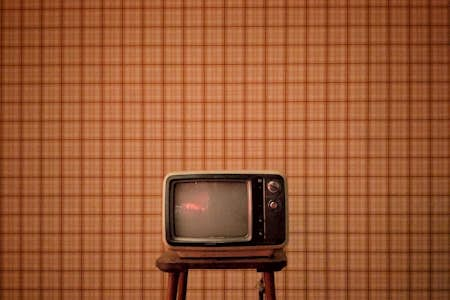Until recently, few people would have doubted the existence of TV detector vans. Most of us of a certain age have seen one, and since the 1950s, guilt-inducing adverts have warned us that, as we watch, likewise, we are being watched.
Stay up to date with all your favourite shows - and know what your kids and grandkids are talking about - by taking out a subscription to a leading streaming service. Click a provider below to get started.
The digital age has brought us over 130 free-to-air channels, not to mention Virgin, Sky, Netflix, and many more content providers. However, the BBC's Financial and Business Division are still responsible for collecting the fee that allows us to watch TV legally.
Any household (apart from a few exceptions) watching or recording live TV transmissions is required by law to have a TV licence. With the BBC’s revenue assured, the corporation has proven highly reluctant to see the system change.
So, too, are they reluctant to answer questions about one of its most notorious supposed enforcement methods, the use of detector vans.
What we know
Detector vans were first demonstrated in 1952.
This, I imagine, was to counter the argument “Yeah, I've got a television, but I never switch it on,” and to catch people red-handed. Different makes of van were used from 1952 until 2003 (at first, it was Hillman Minx and Morris Oxford estate cars). Each new model had a different configuration of aerials, tubes, and booms on the roof. These ostensibly prowled the streets with a bearded boffin hunched up in the back, hunting for unlicensed sets.
In 2003, the BBC switched horses when they removed the 'TV Detector Van' markings and the roof furniture. A spokesman stated that this “allowed the vehicles to operate covertly.”
Explicit tactics changed to covert ones. Any vehicle down your road could be watching you.
Do they work?
From the time when the vans were first introduced, people have claimed that they were a con.
The principal reason being that technology wasn’t and still isn’t sophisticated enough. People argued that it would need to be top secret, state-of-the-art, military-grade equipment. That the vans were only cars given a makeover by the Doctor Who props department. Those in the know said the vans functioned by detecting the magnetic field. As the systems changed to VHF, the signal was apparently picked up from the local oscillator. TV detection technology always kept up and developed increasingly more sophisticated techniques to scupper the evader.
Learn more about how the vans (supposedly) worked here.
Can it be done?
Not everyone was convinced - you can probably tell that I'm one of them - that finding a rogue unlicensed TV among masses of legit ones is possible. Unsurprisingly, there is plenty of debate about this topic on various online forums. However, it isn't easy to find a credible and authoritative source confirming detector vans don't work. There was some furore in August 2016 when a Daily Telegraph report stated: ‘’the BBC plans to clamp down on those streaming iPlayer programmes without a licence by using vans to 'sniff out' those who have not paid the licence fee." The BBC themselves later refuted this report.
University College London computer networking expert Dr Miguel Rio also said this was probably impossible. Dr Rio noted the “most likely explanation” for how the BBC could carry out such surveillance would be a technique known as “packet sniffing.” This unfortunately named technique is a way of logging traffic over a transmitter or device. It doesn’t detect a TV set in use.
Who have they caught?
So, we cannot 100% say whether TV detection is technically possible. However, we can perhaps draw some conclusions by looking at the number of times detector van evidence has led to a conviction of non-payers. The answer to this? None. Countering this, the BBC claims that detection technology is used with advertising as a “deterrent.” However, the adverts imply that people are being monitored and that this will lead directly to conviction.
A comment by TV Licensing stating "detection equipment will only be used if other less intrusive and more cost-effective routes have been exhausted" confirms that vans don’t lead to convictions. At the same time, way back in 2007, the BBC themselves admitted there had been no prosecutions based on detector van evidence, saying the technology was “only used to obtain search warrants.” The Beeb added it is the “evidence obtained by the search warrant that is used, not the detection evidence.”
Who‘s been working for them?
So, it seems highly unlikely a fleet of TV detector vans ever swept the country, nicking TV licence transgressors. Their primary function seems to be as a scare tactic, no more than a publicity stunt designed to frighten people into paying their licence fee. If more doubt needs casting, I have never met anyone who was, or knows of anyone who was, involved with TV licence detection vans. Had there been a covert organisation spying on the public, why have we never had a whistle-blower come forward? From the host of the former operators, technicians, equipment developers, mechanics, and administrators, there’s never been an exposé or a ‘confessions of’ moment!
Fact or Fake?
If it weren’t already obvious, the conclusion that I’ve reached is that television detector vans are fake. No doubt a few existed, and maybe over the last seventy years, they had the technology to detect unlicensed TV sets. The rest is a fabrication. We have been duped into thinking TV detector vans existed in more significant numbers than was true or used in ways that they weren’t. The adverts told us that if we were caught watching an unlicenced TV by a detector van, it would lead directly to prosecution. Back peddling furiously and contradicting the last seventy years, the BBC now claim that vans are used to ‘influence perception’, which I guess is doublespeak for ‘trick.’
Is it ethical?
No. I’m a fan of the BBC. I do a lot of my viewing using BBC iPlayer, and although, like many others, I think the licence fee is outdated, I don’t have a big problem with it. However, I find the TV detector van myth deceitful and patronising. It’s not okay to coerce people because you believe they won’t pay up unless they are intimidated (although they’re probably right). The BBC’s Ethical Code of conduct asks employees to “conduct their businesses in an ethical manner and not seek to gain competitive advantage by means of unethical or dishonest practices.” The BBC’s practices have been unethical and dishonest. Even now, the Beeb still can’t come clean. In response to a Freedom of Information request on the use of TV detector vans, the glib reply was that they “would not discuss how TV detection works for obvious reasons.”
Note the quote in the comments from the ex-TV Licensing employee!
What’s Next?
Politicians from all parties have expressed a wish to get rid of the TV licence, and it looks like it’s heading for extinction. This is understandable and necessary, given how we access TV using multiple devices, over numerous channels, day or night. It is 35 years since 30 million of us sat down on Christmas Day and watched Den serve Angie with the divorce papers. Sometime soon, there will be a moment when every person in the country is watching something different. By then, the licence fee will have long gone, and the hated vans – in whatever modern form they take - will have sculked off to the scrapyard.
TV detector vans: Your questions answered
Are TV detector vans still in use?
It is debatable whether TV detector vans were ever in use, let alone still in use! Even prior employees of TV Licensing admit the technology didn't and doesn't exist, although unsurprisingly TV Licensing continue to say they have various TV detection methods in use.
How can TV Licensing prove you are watching television?
They can't! It's thought that all successful prosecutions brought against license "evaders" have relied on the supposed contents of interviews between a TV Licensing official and property occupiers. In short, the only way it can be proven you're watching television without a TV License is if you admit to it!
Can TV Licensing discover if I'm watching television online?
Only if they illegally hacked your computer or got the information from your internet service provider (ISP)! Given the privacy obligations of ISPs, it is unlikely they would share your browsing habits for a matter as trivial as you allegedly not having a TV License!
Image Credit: Pexels at Pixabay









